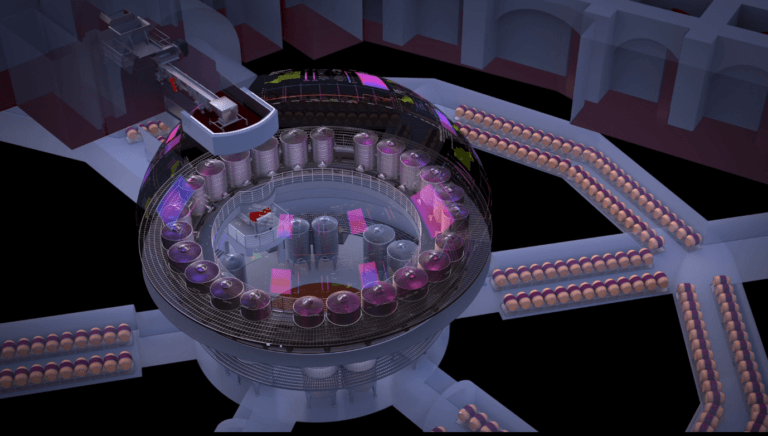Artificial intelligence (AI) has emerged as a game-changing technological force disrupting industries ranging from retail to media. But can big data and complex algorithms transform winemaking, which not only has existed for over 8000 years but is also considered by most to be more art than science?
The Palmaz family, who operate Napa Valley’s Palmaz Vineyards, certainly believe so. The family has spent the better part of a decade building a technologically sophisticated end-to-end wine making process incorporating advanced sensing technology and proprietary artificial intelligence systems to generate, process, and visualize billions of data points.
Today, their core differentiation lies in the technological infrastructure that they built in-house to augment nearly every aspect of the winemaking process.
ALSO READ The Future Digital Technology Trends In Wine
AI-based systems to control the Vineyard and the Winemaking
The Vineyard Infrared Growth Optical Recognition system (VIGOR) combines data from bi-weekly fly overs of a plane boasting a multi-spectral infrared camera that detects plant chlorophyll levels with neutron probe soil testing that detects moisture levels. The AI system uses this data to not only detect burgeoning issues such as viruses but also to modulate watering algorithms and thereby standardize grape growth throughout the vineyard.
The Fermentation Intelligence Logic Control System (FILCS) utilizes start-of-the-art thermographic sensors to monitor temperature and sono-densitometry tools to sense vibrations of fermenting wine in order to quantify the fermentation progression at a granular level. The AI system is then able to both notify winemakers of abnormalities as well as automatically adjust parameters to complete fermentation without human intervention.
The vineyard has implemented technology ranging from a rotating carousel of fermentation tanks (pictured below) to an RFID system that tracks user locations to mechanisms to visualize data in both apps and on the ceiling of the fermentation dome. Their newest innovation efforts are directed at using mass spectrometry to optimize barrel material composition and configurations.

AI saved $10M worth of wine
The early results from Palmaz Vineyard’s experimental approach to winemaking have been promising. The vineyard optical recognition system’s AI capabilities has enabled them to cut water usage by about 20% and align the ripening timeline for all grapes thereby improving fruit quality. The fermentation AI algorithm has continued to learn and improve such that it can now flag an upcoming issue approximately 30 hours in advance thereby allowing for proactive mitigations.
Interestingly, the fermentation intelligence’s system proved its worth in 2017, when the family had to evacuate the vineyard due to wildfires and the smart fermentation tanks continued to automatically control the fermentation process and save about $10M worth of wine.
While the statistics above make clear that the use of big data analytics has enabled Palmaz to create value during the winemaking process, the question remains how much of the upfront technology investment is recouped during the wine selling process.
ALSO READ AI will disrupt wine industry players
Challenges in the the Centuries-old Wine Industry
The primary challenge faced by Palmaz is the fact that their data-driven approach goes against the traditional ethos of winemaking that is rooted in a very old-school, romantic, and artisanal style. While Palmaz claims that their winemakers still control all critical decisions in a traditional manner – just bolstered by a deeper set of underlying data – it’s unclear if their methodology can break through in the world of wine connoisseurs.
Just as The Judgment of Paris in 1976 upended conventional wine wisdom when Californian wines defeated French incumbents in a blind tasting, such an event pitting their AI-augmented wine against traditional powerhouse brands could have significant and long-term benefits.
Palmaz Vineyard is pursuing a highly digital approach in an incredibly analog industry. While their early successes have demonstrated significant value savings internally during winemaking, it remains to be seen if their approach will translate into a sustainable product or service differentiation externally in the competitive wine market.